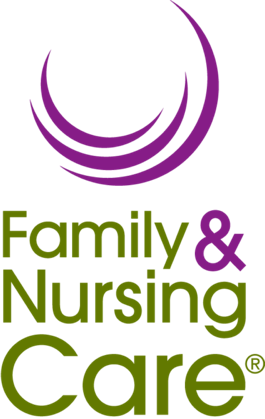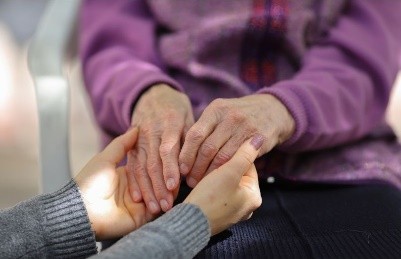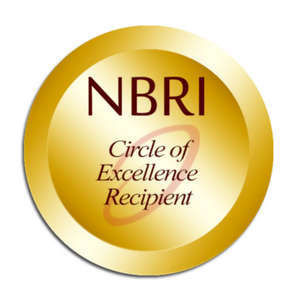 As the United States population ages, long-term care insurance (LTCI) is becoming an increasingly prevalent way for families to manage the costs of home care, assisted living, and nursing home care. With 70% of adults over 65 expected to need some form of long-term care in their lifetime, planning for these expenses is critical. However, navigating the complexities of LTCI policies, claims, and reimbursements can be overwhelming for families. This is where Family & Nursing Care Select’s Long-Term Care Insurance team sets itself apart, offering unparalleled support and advocacy throughout the process.
As the United States population ages, long-term care insurance (LTCI) is becoming an increasingly prevalent way for families to manage the costs of home care, assisted living, and nursing home care. With 70% of adults over 65 expected to need some form of long-term care in their lifetime, planning for these expenses is critical. However, navigating the complexities of LTCI policies, claims, and reimbursements can be overwhelming for families. This is where Family & Nursing Care Select’s Long-Term Care Insurance team sets itself apart, offering unparalleled support and advocacy throughout the process.
The Growing Need for Long-Term Care Insurance
The aging U.S. population is driving increased demand for LTCI. According to the U.S. Census Bureau, the number of people in America aged 65 and older is projected to reach 80 million by 2040. However, despite the clear need, only 7.5 million people in the U.S. currently have LTCI coverage. Many mistakenly believe that Medicare or standard health insurance will cover long-term care, only to face unexpected out-of-pocket costs.
Without LTCI, the costs of care can be staggering. In 2023, the median annual cost for assisted living was $64,000 and a private room in a nursing home exceeded $108,000. While in-home care is more flexible and can be arranged on a short-term or long-term basis depending on the client’s needs, the hours of care needed can add up quickly, making LTCI a crucial financial safety net for many families.
Family & Nursing Care’s Long-Term Care Insurance Team: A Key Differentiator
While some home care resources may assist clients with submitting invoices to insurance companies, Family & Nursing Care Select takes a more comprehensive, hands-on approach. The company’s dedicated Long-Term Care Insurance team, led by Karin Martinez and Alexis Shaw, supports clients throughout the entire lifecycle of their claims.
Karin Martinez, Senior Long-Term Care Insurance Manager, explains, “Unlike other companies that simply send invoices, Alexis and I work with clients for the whole life of a claim. We help navigate policies, translate complicated insurance language into real-life terms, and proactively guide families through the entire process so they can be reimbursed as quickly as possible.”
Martinez also mentioned observing a consistent increase in LTCI: “Currently, 72% of clients with Family & Nursing Care Select have LTCI, and that percentage increases each year, underscoring the importance of guidance to receive the maximum benefits.”
Family & Nursing Care Select’s LTCI team offers clients and their families the following support to make the most of policies:
- Expert guidance from the initial call with an LTCI carrier to ongoing support and troubleshooting.
- Claims management assistance, ensuring policies are properly utilized and maximizing reimbursements.
- Hands-on support, including helping clients complete paperwork, understanding insurance company assessments, and filing appeals if necessary.
- Expedited reimbursements by consistently following up with clients and the insurance providers to keep the process moving smoothly and helping to avoid roadblocks that can come up.
- Education and empowerment, helping families fully understand their benefits and making informed decisions about their care
Family & Nursing Care Classic also provides LTCI support for clients by assisting them in understanding their benefits and resolving claims issues but does not submit documents on their behalf.
Helping Families Overcome Policy Challenges
One of the biggest barriers to successfully using LTCI is understanding the fine print. Every policy is different, and many clients are unsure of what is covered or how to qualify for benefits. “A lot of people assume they need to be physically dependent to qualify, but even things like fall risk can make them eligible,” says Alexis Shaw, Long-Term Care Insurance Manager. “We help clients see all their options.”
Another common challenge is the assessment process, where insurance companies evaluate whether a client qualifies for benefits. “We prepare families for these assessments, helping them understand what to expect and how to accurately represent their needs,” explains Martinez. Without this guidance, clients may inadvertently downplay their needs, leading to denials.
Additionally, insurance companies often face challenges by not receiving invoices from home care providers and insufficient details on those invoices to adequately support claims. Fortunately for clients, Family & Nursing Care Select’s LTCI team’s primary job is to advocate on their behalf to address all these common issues. The team can often even help clients uncover additional benefits within their policies, such as coverage for medical equipment, home modifications, and emergency response systems. “Many families don’t realize that policies can help cover things like special equipment, grab bars, stair lifts, home modifications, life alert systems and even aging life care professional benefits,” says Martinez.
A Service Families Rely On
The impact of Family & Nursing Care’s LTCI team is evident in the gratitude they receive from clients. “We often hear sighs of relief from family members who say, ‘We couldn’t have done this without you,’” says Martinez. “We take on much of the burden of keeping up with the claim process, so family members can focus on their loved one.
In fact, the LTCI team estimates on average they help families receive reimbursements totaling over $100,000 annually, ensuring they get the funds they are entitled to. Their advocacy also doesn’t end when home care services stop — the LTCI team often helps older adults as they transition to assisted living facilities or even months down the road after leaving with insurance-related issues.
The Future of Long-Term Care Insurance
While traditional LTCI policies are evolving, newer hybrid policies are emerging, combining life insurance with long-term care benefits. These policies allow unused benefits to be passed down to family members, making them an attractive alternative to traditional models.
However, as policies evolve, insurance companies are also introducing new hurdles, including stricter eligibility requirements and digital verification processes that can be difficult for older adults to navigate. “Technology is growing in every respect, which can be daunting for seniors,” explains Shaw. “This is just another reason why our support is so critical.”
Why Family & Nursing Care Select’s LTCI Team Stands Out
Family & Nursing Care Select’s commitment to holistic support for clients is what sets its LTCI team apart. “We are here to relieve stress and let families focus on what truly matters — their loved one’s well-being and their own peace of mind,” says Martinez. By providing expert guidance, hands-on assistance, and proactive advocacy, the LTCI team helps ensure clients receive the full benefits they deserve with as little hassle as possible.
For families navigating the complexities of long-term care insurance, the difference between handling it alone and having a dedicated LTCI team by their side can mean everything. To learn more, visit our Home Care Services webpage.


 The Sandwich Generation — adults who are simultaneously caring for aging parents while raising children — continues to face mounting pressures in today’s world. Balancing work, family responsibilities, and caregiving can often feel overwhelming, especially with an aging population and growing demand for eldercare. While the challenges remain significant, support solutions like professional home care services can help alleviate the burden.
The Sandwich Generation — adults who are simultaneously caring for aging parents while raising children — continues to face mounting pressures in today’s world. Balancing work, family responsibilities, and caregiving can often feel overwhelming, especially with an aging population and growing demand for eldercare. While the challenges remain significant, support solutions like professional home care services can help alleviate the burden. Recent research highlights a stark reality: the risk of developing dementia is significantly higher than previously estimated. According to a new
Recent research highlights a stark reality: the risk of developing dementia is significantly higher than previously estimated. According to a new 



 Family & Nursing Care is honored to receive the
Family & Nursing Care is honored to receive the  With an estimated 48 million people in the U.S. taking care of adult relatives or friends and 61% working fulltime while caregiving, it comes as no surprise that these people are having trouble balancing their competing responsibilities. What’s more, the sandwich generation – adults who care for their parents while still raising their own children – is growing faster than ever, putting increased pressure on individuals caring for family members of all ages, whether it’s assisting with daily activities, medical care, finances, and emotional support.
With an estimated 48 million people in the U.S. taking care of adult relatives or friends and 61% working fulltime while caregiving, it comes as no surprise that these people are having trouble balancing their competing responsibilities. What’s more, the sandwich generation – adults who care for their parents while still raising their own children – is growing faster than ever, putting increased pressure on individuals caring for family members of all ages, whether it’s assisting with daily activities, medical care, finances, and emotional support.



